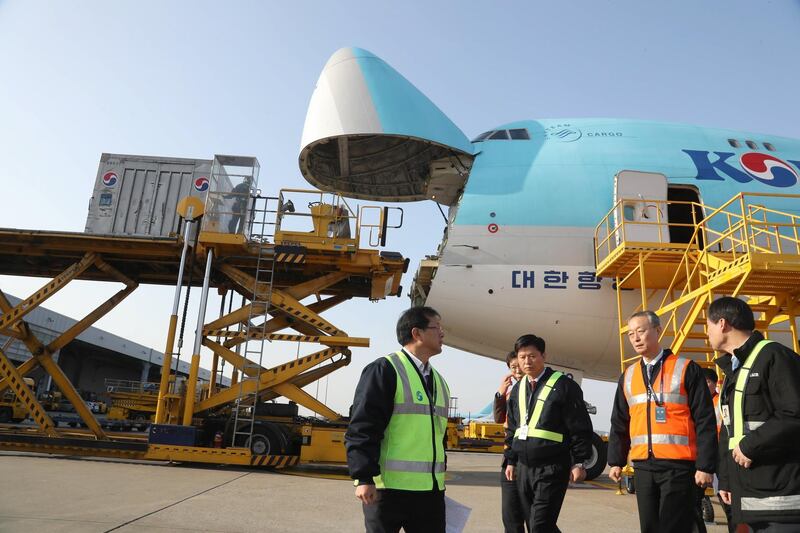Global demand for air freight slowed in May due to weak global trade volumes as well as trade tensions between the US and China, according to the International Air Transport Association (Iata).
Air freight measured in freight tonne kilometres (FTKs) slowed by 3.4 per cent in May compared with the same period last year, even though there was a slight improvement over the contraction of 5.8 per cent seen in April.
“The impact of the US-China trade war on air freight volumes in May was clear. Year-on-year demand fell by 3.4 per cent. It’s evidence of the economic damage that is done when barriers to trade are erected,” said Iata director general and chief executive Alexandre de Juniac.
He welcomed recent efforts to ease trade tensions notably along the sidelines of the G20 summit in Osaka between US President Donald Trump and Chinese President Xi Jinping. He observed, however, that any successes from these engagements may be short-term.
“Restoring business confidence and growing trade will take time. And we can expect the tough business environment for air cargo to continue,” he added.
Regionally, Asia Pacific as well as the Middle East suffered sharp declines year-on-year in terms of total freight volumes for May, while North America and Europe saw more more moderate declines. Only Africa as well as Late America registered growth in demand for air freight during May compared to last year.
Middle East airlines in particular saw freight volumes decrease by 6.9 per cent in May compared with the same period last year, while capacity also slowed by 1.6 per cent.
Weakening air freight volumes to and from North Africa as well as Asia Pacific contributed to the softer performance.
"Once again, these flows reflect the broader weakness in global trade volumes, combined with the impact of the restructuring of airline business models currently underway in the region,” Iata noted.








